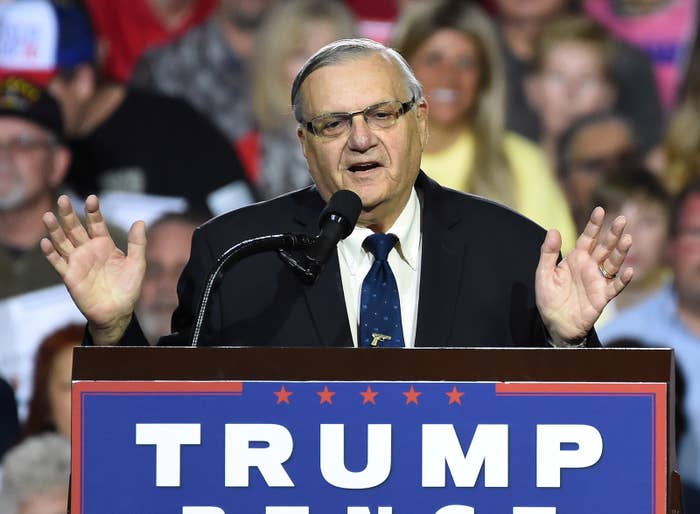
A federal judge isn't convinced she can vacate former Maricopa County Sheriff Joe Arpaio's criminal contempt conviction in the wake of President Trump's pardon and instead asking for more briefing on the effect of the presidential action.
The move doesn't mean US District Judge Susan Bolton is still seeking to sentence Arpaio for the conviction, but it does signal that she is considering simply dismissing the case while leaving the guilty verdict on his record.
The controversial Arizona sheriff was found guilty of criminal contempt of court for refusing to stop traffic patrols targeting suspected undocumented immigrants. After the pardon in August, Trump's first as president, Arpaio asked Bolton to vacate the conviction and dismiss his case.
Bolton was set to sentence Arpaio on Oct. 6 for his conviction until Trump's pardon. Now, she is scheduled to consider his request to vacate the conviction on Oct. 4.
In response to Arpaio's request, the Justice Department agreed, calling it "just and appropriate" for the judge to vacate her orders and dismiss the case.
The move led several outside parties to weigh in, with many going so far as to ask the judge to consider whether the pardon itself was void.
Bolton did not directly address that issue, instead focusing in Thursday's order on the effect of the pardon.
Arpaio has asked Bolton to vacate the "verdict and other orders in this matter," she wrote, and the Justice Department "appears to agree with" that request. The cases cited by Arpaio and the Justice Department, Bolton wrote, focus on vacating the final judgment in a case before dismissing it — not the more broad request of vacating all of the orders in the case.
Because Arpaio had been convicted, but not sentenced, for criminal contempt due to his repeated refusal to follow federal court orders in a case challenging his policies for detaining people based solely on their perceived immigration status, there was no final judgment. As such, Bolton wrote that the cases cited "suggest that dismissal with prejudice is all that remains to be ordered."
She continued, however, noting that "U.S. Supreme Court and Ninth Circuit case law suggest that a presidential pardon leaves intact the recipient’s underlying record of conviction. ... The Government’s Response does not sufficiently address this issue. Therefore, supplemental briefing is appropriate."
The Justice Department is to file a five-page brief on the question by Sept. 21. Arpaio can also file a reply, per the order.

